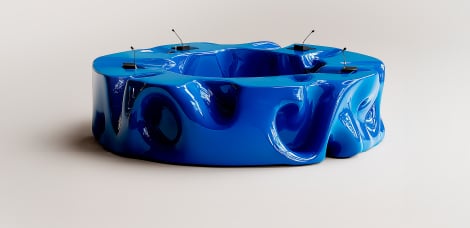-
TrendsReputationConsumerArtificial IntelligenceEuropean Affairs
-
SectorHealthcare and Pharmaceutical IndustryOthersIT and Communications
-
CountriesGlobalSpainPortugal
On March 11, 2020, the World Health Organization (WHO) declared the coronavirus outbreak a pandemic. No one is certain what this pandemic’s final consequences will be, but we do know it will cause a great deal of damage worldwide, both from the human and financial perspectives. Our global context was already volatile, uncertain, complex and ambiguous (VUCA), but COVID-19 has amplified each of these features, creating disruption by accelerating some recently discussed trends.
LLYC has the utmost respect for the complex situation facing both people and companies. We are facing a living, evolving crisis, and it is changing how we relate. In this, we discuss some potential evolutions in the relationship between brands and consumers both during and (especially) after this pandemic.
Brand Evolution
FLEXIBLE STRATEGIES
In this ever-changing situation, and considering the aftershocks we can expect following this pandemic, brands that were not working off of flexible strategies (particularly very verticalized companies with limited short-term response capacities) will have to learn from start-ups and big tech corporations. In the past, these two groups were agile enough to transform and adapt their strategies and even their business models with the changing times. The case of Time Out magazine is a good example. Previously focused on outdoor activities, it became Time In during the crisis, switching its content to home leisure. It is also worth mentioning that brands such as KFC and Hershey’s recalled international campaigns that were considered insensitive. In a changing environment, a rigid plan has the potential to become a prison, preventing a company from achieving its goals. It is thus crucial to develop and, above all, manage brands with strong identities fluidly, adapting their strategies without betraying them. This will allow brands to respond consistently across many different scenarios.
THE MANTRA OF “ANTICIPATION”
Relying on research helps us understand unlikely or unpredictable events, and then act on them. In this era of extraordinary changes, brands will need to work on maintaining an integrated vision of reality and always staying one step ahead, now more than ever. Predictive analysis can be helpful to improving a company’s ability to react and make decisions according to the context. It is not only about predicting specific phenomena, but also being able to manage scenarios while going beyond short-term goals. The use of data analysis technology for crisis management, with South Korea leading the way, will serve as an incentive for brands to start including a data component in their management systems. This could help them transform their innovation models.
COLLABORATING WITH CONSUMERS
Now more than ever, brands belong to the people. Brand communications analysis during a crisis shows that pretending to be faster or more original than consumers makes no sense. The brands with the highest levels of public acknowledgement for their reactions have been those that aligned themselves with the conversations their communities were already having, connecting these discussions with their corporate purpose to show their relevance. Most have done this following three main lines: Offering value in the form of discounts or free services/products (such as Naturgy supplying free energy to hotels and homes, or telecom operators offering entertainment services or data); creating an atmosphere of comfort and understanding through their communications (such as Ikea and Vodaphone did with their campaigns in Spain); or making themselves useful during this complicated time (like Inditex or Pernod Ricard did by manufacturing PPE or disinfectants (respectively) in their facilities). Brands that intended to continue communicating as usual, or those which, in some specific cases, tried to use the crisis as an opportunistic excuse, have encountered social rejection.


“Relying on research helps us understand unlikely or unpredictable events, and then act on them. In this era of extraordinary changes, brands will need to work on maintaining an integrated vision of reality and always staying one step ahead, now more than ever”
SOCIAL COMMITMENT
In difficult times, companies’ commitments to the communities in which they operate comes to surface. Recently, many brands have filled their communication and marketing messages with responsibility and sensitivity. More than ever, we are seeing the brands’ social role work in real time. This does not compete with the roles of public entities, but rather complements and expands upon them. For brands that have been working to activate their purposes, it is now easier to connect with society by transcending regular activities or financial capabilities. The focus on high-risk groups (primarily the elderly), especially in the case of food retail, highlights the existence of more empathetic and human brands, detached from old corporate values that were often a priority. In this regard, social commitment is more clearly manifested when translated into the attitudes of company leaders—especially CEOs. They are role models for the company’s values.
STABLE ADVOCACY
In this era of generalized loss of trust, it is precisely trust that becomes a precious, necessary commodity, and communication is one of the key tools brands have to help build it. Relying on stable communication platforms or communities helps brands improve their messages’ consistencies, reinforce their legitimacy and coherence and build advocacy among employees and consumers in a natural fashion. Now more than ever, brands (and the companies behind them) have realized how necessary it is to have real advocates among their stakeholders. These are the people who will share their values and support their decisions during times of difficulty. Focusing on developing real, continuous advocacy will become one of the main post-crisis tasks for many companies.
RADICAL AUTHENTICITY
More than ever, the crisis is underscoring the need for all brand communications to show a high degree of authenticity and transparency, especially given these complex times. Brand communication can be like crossing quicksand, but this has also made those companies sharing genuine communications stand out—even when faced with the toughest decisions. This was exemplified by the viral post entitled Joder (Fuck) by shoe brand Pompeii, or the profound online message sent by Marriott’s president. This authenticity is very much related to the humanization of key messages, the use of an empathetic and intimate tone and, especially, the indispensable element of complex transparency.
“Focusing on developing real, continuous advocacy will become one of the main post-crisis tasks for many companies.”

How consumers are evolving
UNCERTAINTY AND THE PURSUIT OF SECURITY
LLYC’s 2020 trends report discussed the issue of consumer behavior in crises, specifically looking at how they continued to display some of the same behaviors they did during the financial crisis even in its aftermath. It seems clear that the feelings of anxiety and uncertainty created by this pandemic, boosted by rampant fear job loss, will only exaggerate these features. This may affect consumption even after the confinement period has ended. On the other hand, the situation has also shown that many citizens see brands as a pillar of stability in difficult times. They seek the comfort or security they may not always find in other areas in brands (although the public sphere will gain new importance). Therefore, brands that focus on projecting a sense of calm and wellbeing are creating more positive emotional bonds. The crisis will also cause an increase in conscious consumption, with people now being encouraged to buy online from local or nearby stores to support them, so that they can make deliveries after confinement.
PERSONAL AWARENESS
Understanding the importance of personal care and the body-mind balance is another trend that has existed for some time now, but was necessarily accelerated by this pandemic. Content related to mindfulness, fitness, yoga and meditation, as well as the apps promoting them, have seen increased consumption during confinement. Furthermore, there are growing conversations on personal care and the importance of balancing time between leisure and work. The end of confinement will be a great opportunity for brands focused on health, health services, science, physical activity and personal care. In turn, social conversations about time balance will likely intensify, and people’s taste of cooking will lead to an increase in this activity over purchasing convenience foods.
“The situation has also shown that many citizens see brands as a pillar of stability in difficult times”
DIGITAL CONSUMPTION AND CREATIVITY
Confinement has offered many people a chance to explore new alternatives to having fun, communicating, shopping or working in the digital era. This experience of virtual leisure, access to deliveries, online shopping and teleworking will reshape people’s habits and provoke faster-than-expected changes in areas such as digitalization, on-demand services and e-commerce. This, in turn, will foster regulatory debates about creating barriers around tools or digitally-focused companies. This crisis is also stressing the disintermediation LLYC has already discussed, as shown by experiments such as Amazon Go in the past. These efforts reduce the number of interactions between humans by design. On the other hand, confinement has also fostered creativity among social media users, not only when consuming content, but also when mass-producing their own entertainment through challenges, games, lists, etc. This will also help popularize tools such as Instagram Live and drive the use of humor to deal with the anxiety created by this situation.
THE ENVIRONMETAL SUSTAINABILITY PARADOX
Sustainability awareness, waste management, the importance of consuming organic products, pollution, recycling and environmental care have become especially relevant topics during this context of reflection. Through sad necessity, this pandemic has become the largest global experiment on pollution reduction. For example, NASA reported that pollution in China fell by 30 percent between Jan. 1 and 20. A similar effect was seen in Italy, according to data from the European satellite Sentinel-5P. However, it is likely that the debate around environmental sustainability—which had recently gained momentum due to conversations about the climate emergency—will be obscured by other priorities related to safety and personal health. That said, the Chinese case has taught us how this can lead to growing demand for organic products and more concern about the environment. It remains to be seen what will tip the scale once the crisis gives way to long-term reflection.

DEMANDING CONSUMERS
The need to manage our time, the importance of our personal relationships, care for our loved ones, social awareness, intelligent resource management… Consumers learn faster every day, always looking for useful, meaningful brands that go beyond superficial issues to make their lives easier. The need for a constant flow of information, created by the pandemic, will also impact consumer expectations in terms of process transparency. This will be especially true in cases related to food security, as shown by delivery services’ efforts to inform all users about the protocols followed to avoid contamination. Just as authorities are relentlessly demanding citizens become role models to overcome this situation, those same citizens will, more than ever, demand the same thing in return, not only from institutions but also from the brands they relate to.
MODERN EMPATHY VS. CONFINEMENT
Sharing a house 24/7 forces us to show all of our creativity in finding new ways to entertain the family and learn to manage both our own emotions and those of others. In this regard, the pandemic is reinforcing the roles of relationships, teamwork and the importance of coming together and cooperating to overcome adversity. There is also more focus on personal and relational wellbeing over wealth accumulation or frenetic consumption, aligned with the foreseeable economic stagnation. Debates on collective wellbeing might be very significant in the U.S. elections, where the sense of insecurity many feel during the crisis may support more progressive positions in terms of the public sector’s importance and, more specifically, health coverage. Paradoxically, the crisis and continued confinement will also boost people’s sense of isolation, and society should anticipate an explosion of symptoms linked to post-traumatic stress.
“The pandemic is reinforcing the roles of relationships, teamwork and the importance of coming together and cooperating to overcome adversity”
Authors
Guillermo Lecumberri
Marlene Gaspar



